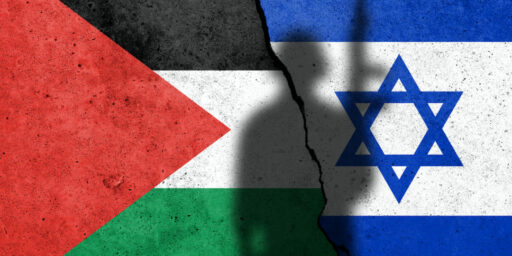Burma Air Drops
Barbara Stocking explains that simply dropping food into Burma is much harder than it sounds.
[A]ir drops are not the aid equivalent of smart bombs. Running a humanitarian effort from the skies, like running a purely airborne war, is fraught with problems.
For a start it requires excellent intelligence. Yet no one knows exactly where the worst affected areas are, or how many people are suffering in each place. We don’t know if people are on the move, or what diseases are starting to appear, or exactly what state their homes and infrastructure are in.
Without good intelligence it’s very hard to run an effective humanitarian operation – especially an airborne one. It would be only too easy to drop the food miles from the nearest village, or even in water or swamp. Food is perishable and leaving it outside for too long could ruin it. You can’t drop a well or a sanitation system from the sky without specialists to set it up. Communities could find themselves with aid completely inappropriate to their situation.
Of course, air drops would presumably be at least marginally better than standing by and doing nothing while waiting for the junta to allow us to help. But it’s not as simple as it sounds. That’s pretty much always the case when “Send in the military!” is proposed as a solution to some crisis.
True, we managed to overcome plenty of obstacles in a somewhat similar situation decades ago with the Berlin Airlift. But we were dealing with a rather smaller geographic area and had plenty of experienced people on the ground to deal with the sort of issues Stocking describes.
Via Andrew Sullivan






I’m not so sure. There’s a risk of crushing somebody with a drop. IIRC that happened a couple of times when we were attempting to give a hand to the Kurds.
Would you rather crush a dozen people or let hundreds starve? Food is also only a part of what typically gets dropped. Water, blankets, tents, and some basic medicine can save a lot of lives. Also, its easier the first couple of weeks for airdrops planning – you just stay with basics and this isn’t the first time we’ve done this.
The analogy to Berlin Airlift is off base. Berlin was isolated for some time and all supplies had been coming in via train or truck for several months. So the Allies knew what was needed. When the Soviets cut off ground routes the issue was maximizing airlift and prioritizing what was shipped. In this case planners don’t know what people on ground need, the population is dispersed, and the area impacted is huge.
Didn’t the U.S. and the U.K. essentially invent the airdrop in Burma during WWII?
The criticism here sounds like the perfect being the enemy of the good. Of course, aid workers bring added value and certain medical aid simply can’t be packaged. These don’t seem like good reasons to provide no food or medicine.
And I’m not terribly worried about crates crushing anyone. I would be worried about the Burmese military opening fire on anyone seeking to get the aid packages or found in possession of them.
I agree that a comparison to the Berlin airlift is totally off base. Having someone on both sides and landing the planes to off load is a huge difference compared to kicking pallets out the back as you fly over.
I also agree that something now is worth more than the perfect things later.
But I also have a solution to this that should make the left happy. We round up a bunch of UN staffers (I hear NY has a surfeit of them). We kick the pallets of food out the back of the plane and then toss out a bunch of the staffers. They can then begin the process of distributing the aid, figuring out what the next plane needs, etc. And of course the UN has the absolute moral authority penumbra that the Burma junta can’t object to. The right gets to see the UN being useful. The left gets to see the UN take the lead in an international crisis. The UN gets some hands on experience. win-win-win.
Another problem with the Berlin analogy – we were not flying over territory claimed by East Germany or the USSR, we used the travel corridor – meant for ground transport, to be sure, but careful flying could keep planes inside. While there was an outside the planes might have taken fire, at that point in history it would certainly have resulted in a war that noone wanted.
yetanotherjohn:
Burma doesn’t give shit about the UN’s ‘moral authority’. And as long as Burma doesn’t want to open up, China will veto any UN resolution to forcibly drop aid on Burma.
I think the prospects of any form of significant foreign aid other than that channelled through organizations that already have staff in Burma (e.g. World Vision, Red Cross) are pretty dim. The generals will make a few tiny concessions here and there until the media loses interest in the issue.